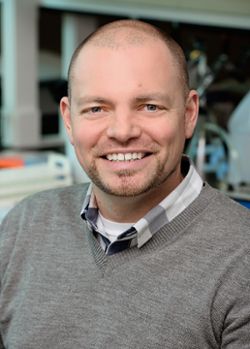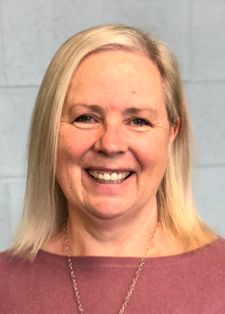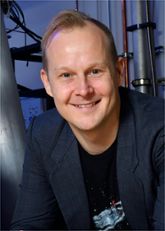A "virtual" success: NatSci's 11th annual Classes Without Quizzes held online
The College of Natural Science (NatSci) put a twist on their annual alumni event—Classes Without Quizzes (CWQ). For 2021, it was Classes Without . . . well, a classroom. But the event was held nonetheless, the way most classes everywhere have been held this past year—online.
More than 260 alumni, friends and guests registered for the virtual event, which was held on April 24. Of those attending, 71 percent were attending CWQ for the first time. In addition, of those participants who have attended CWQ in the past, 38 percent have attended two or more times and 17 percent have attended the event every year.
“Our goal today is simple—to show you some of the amazing science we are doing,” said Phillip M. Duxbury, NatSci dean. “We are pleased to see an increase in our program registration this year—most likely due to the convenience of ‘attending’ online.”
The day’s “classes” featured three presentations about what researchers have been working on in NatSci labs: staying one step ahead of antimicrobial resistance; a new curriculum that helps students get a CLUE about chemistry, life, the universe and everything; and the development of new technologies to help keep the United States in the lead in an international race to build the best quantum computers.

Neal Hammer, assistant professor in the Department of Microbiology and Molecular Genetics, presented “You Are What You Eat: Increasing Our Understanding of the Nutritional Requirements of Bacterial Infection.”
Hammer’s lab is seeking to discover nutrient sulfur acquisition strategies employed by Methicillin-resistant Staphylococcus aureus (MRSA), one of the most common types of bacterial infections in the clinic. The goal of the work in Hammer’s lab is to provide novel therapeutic strategies to combat MRSA by impeding nutrient sulfur acquisition.
“As long as there are researchers who are continuously identifying new therapeutic targets—and small molecules that inhibit those therapeutic targets—I think we can stay one step ahead of antimicrobial resistance,” Hammer said.

Melanie Cooper, Lappan-Phillips Professor of Science Education in the Department of Chemistry, presented “Chemistry, Life, the Universe and Everything (CLUE).”
Cooper is responsible for putting the CLUE curriculum—which is all about getting students to use their knowledge rather than just memorize it—in place 10 years ago.
“Our research focuses on how we can support students’ understanding of . . . abstract ideas by designing new curriculum materials and teaching approaches. The CLUE curriculum makes chemistry more realistic,” Cooper said. “For instance, a scientist doesn’t run off to a lab and do 50 end-of-chapter problems!” Neither do her general chemistry students.

Johannes Pollanen, assistant professor in the Department of Physics and Astronomy, presented “Building Quantum Technologies . . . One Electron at a Time.”
Quantum physics governs how atoms and electrons behave. In the past 100 years, scientists have figured out how nature works at the quantum level. Now they are ready to take the next step by making useful devices and circuits that behave by the same quantum laws.
New technologies being developed in Pollanen’s lab, and in other quantum labs around the world, have the potential for groundbreaking discoveries with applications across many disciplines, and could lead to novel drug discoveries and new search algorithms for data science.
In addition to the three faculty presentations, two Dean’s Research Scholars—Racheal Nassimbwa (biomedical laboratory science, ’21) and Brent Strong (physiology, ’21)—presented their work to attendees.
To learn more about the presentations and the presenters, view the program booklet at https://natsci.msu.edu/sites/_natsci/assets/File/Bluebook_2021.pdf.
The 12th annual Classes Without Quizzes will be held April 23, 2022 and is open to all MSU alumni and friends. For more information, or to be added to the mailing list, contact Sara Ford, alumni relations coordinator, at fordsar2@msu.edu.
Banner image: To learn more about this year's CWQ presentations and the presenters, view the program bluebook at https://natsci.msu.edu/sites/_natsci/assets/File/Bluebook_2021.pdf. The 12th annual Classes Without Quizzes will be held April 23, 2022 and is open to all MSU alumni and friends. Credit: Harley J. Seeley